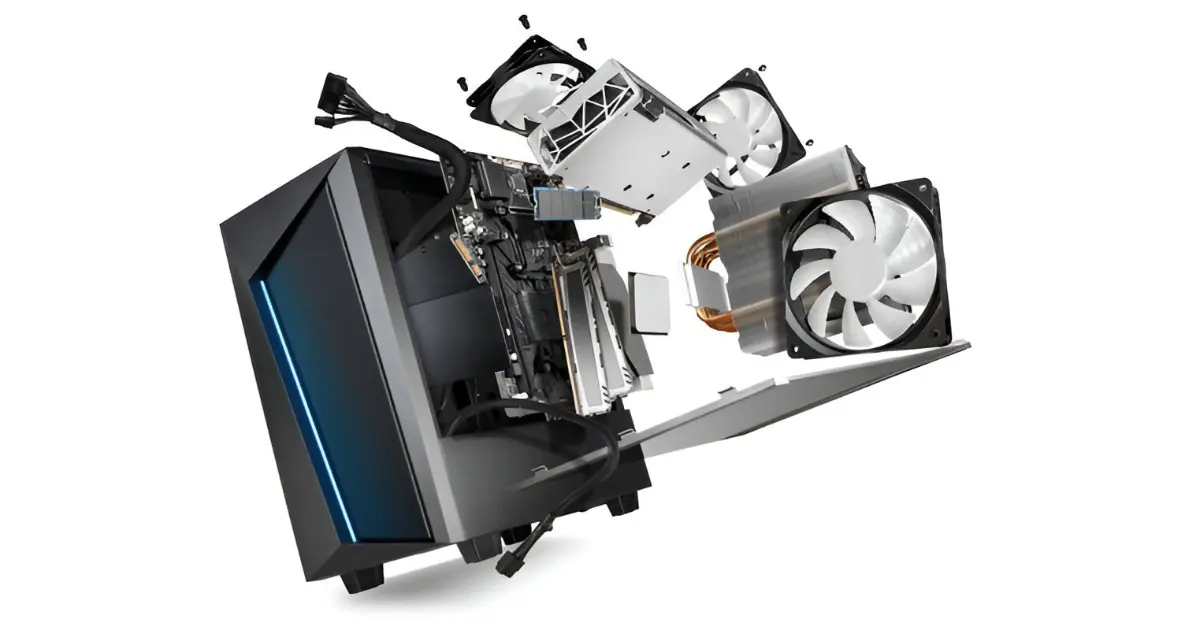When we come to the gaming we think about the gaming PC weigh, The Weigh of gaming PC depends on its components. A high-end build with high-performance graphics cards, cooling systems, power supplies, and durable cases can easily weigh upwards of 60–80 lbs (28–37 Kg). In contrast, a low-end setup is usually lighter, around 20–30 pounds (10–13 Kg). Even a rig like the Corsair 500R or 600T can reach 60–70 pounds when fully installed with multiple GPUs, hard drives, extra fans, and water cooling.
For a newcomer, the computer world can be intimidating with its complex hardware specs, storefronts, and hundreds of games. I remember feeling overwhelmed, trying to pay attention to details like size and weight. The truth is, you don’t necessarily need to spend hours on the tinniest details. Just knowing the basics—like how the weight varies from case to case—makes things easier. An average system for everyday use starts at 9 Kg (20 lbs), while heavy-duty builds are much heavier.
Is Gaming PC Weigh so Heavy?
A gaming PC is heavier than a regular computer because it uses large components for better performance. Unlike Laptops with small parts, desktop builds prioritize power. Since large parts are cheaper to produce, they are preferred. High-end setups also need strong cooling options, which a battery-based laptop lacks. This is why desktops often outspend laptops in thermal efficiency.
Playing Modern games for long gameplay can overload a PC, so they are designed with powerful cooling systems to enhance overall performance. Some say the weight factor is overrated, but these machines focus on power, not portability. The major disadvantage, perhaps the only one, is the price—a Fully installed system costs more than assembling one.
A desktop gaming PC includes a CPU, Motherboard, RAM, System unit, Power Supply, Hard disk, SSD, and Video card. These components add weight but improve gaming. If you consider a prebuilt device, it’s often heavier due to extra features. To reduce weight, you can forgo unnecessary parts and focus on performance.
Weights by Components
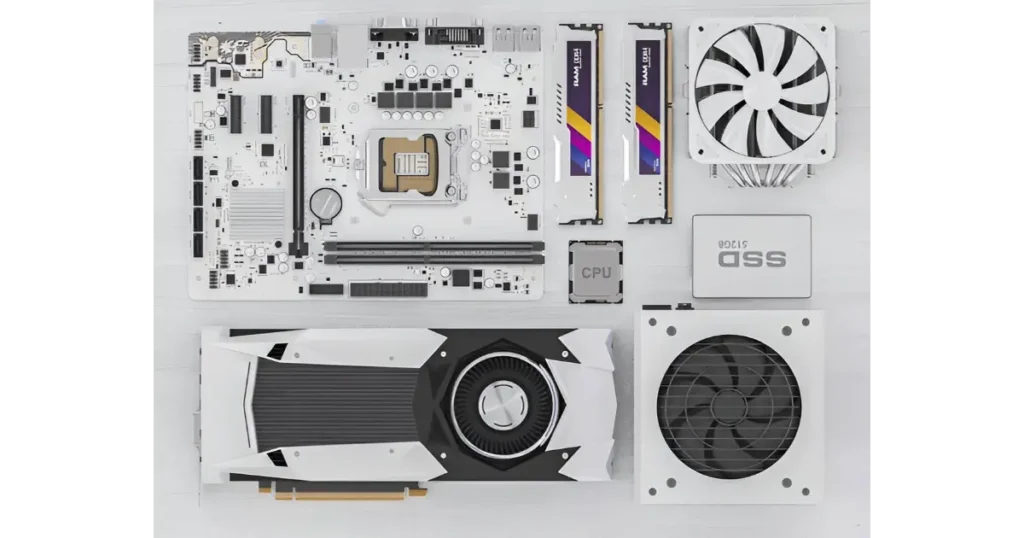
PC Case
The PC case plays a key role in both aesthetics and functionality, with its weight depending on the design and features. A gaming-oriented build often includes additional fans, dual chambers, and RGB lighting for an added flair. Some cases even have tempered glass panels, enhancing their look but also increasing their weight. These factors make PC cases vary widely in size and durability, depending on the components inside.

A High-end PC case can weigh approximately 15.8 Kg (35 lbs.), built for advanced cooling and expansion. A Mid-End option is around 12.2 Kg (27 lbs.), offering a balance of features. Meanwhile, a Budget case is typically 9 Kg (20 lbs.), lightweight yet functional. Choosing the right case depends on the setup you need, ensuring a perfect balance between airflow, space, and durability.
Motherboard
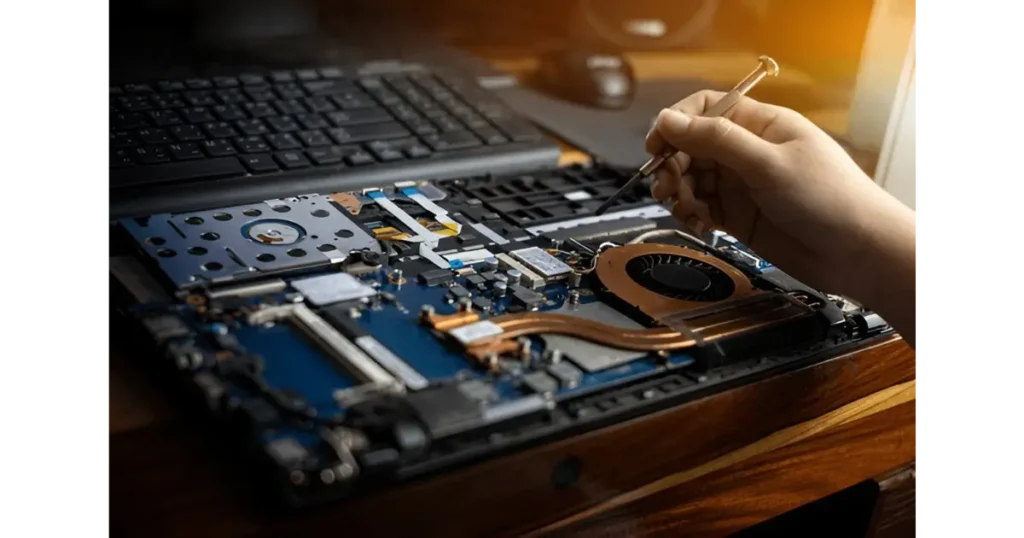
Many motherboards may look small, but they actually weigh between 0.45 Kg (1 lb.) and 1.5 Kg (3.3 lbs.), depending on their construction and features. The board’s age and build quality also play a role in determining its weight. Older models tend to be lighter, while modern boards with advanced components are often on the heavier side.
A feature-rich motherboard with extensive connectivity, multiple expansion slots, and premium materials will naturally be bulkier. These high-end models are influenced by the need for durability and better performance, making them more substantial compared to basic ones. Whether you’re upgrading or building a new system,
Processor
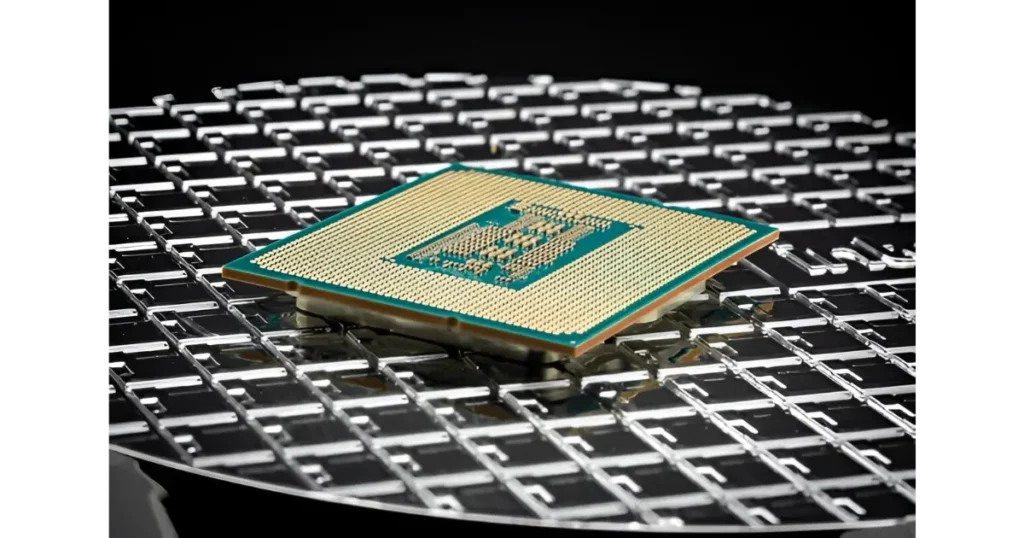
Many people think that processors add a lot to a PC’s overall weight, but they actually contribute minimally. These tiny chips typically weigh between 42 grams (0.1 lbs.) and 85 grams (0.2 lbs.), making them one of the smallest and lightest parts of a computer. Since they are compact, their total impact on weight is almost unnoticeable compared to other components like the case, GPU, or cooling system.
Despite their small size, the role of a processor is paramount in determining a PC’s performance. A powerful CPU ensures smooth multitasking, fast load times, and efficient gaming experiences. High-end processors come with more cores and faster clock speeds, but their weight still remains low. While other components may bulk up the system, a processor stays light without compromising power.
Graphics Processing Unit (GPU)
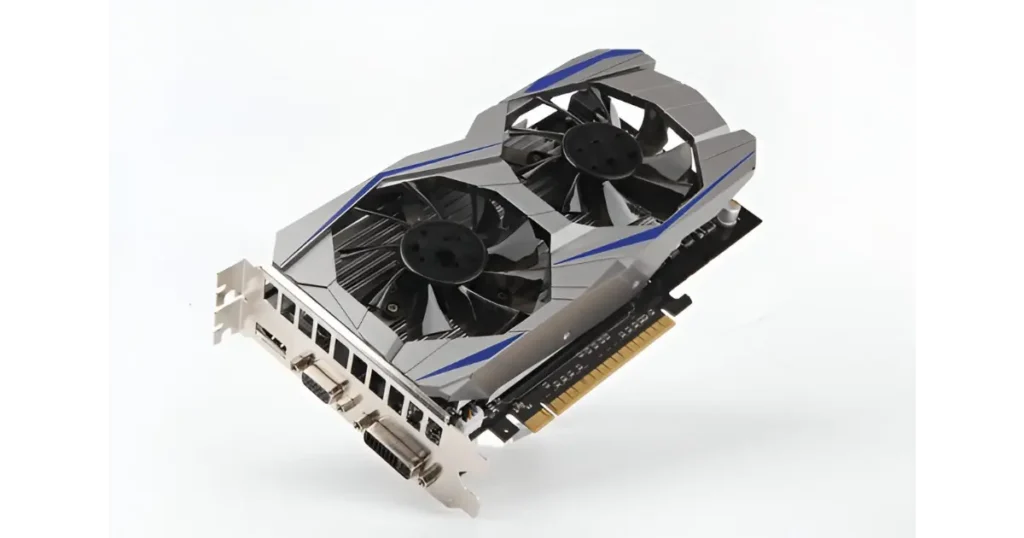
The GPU plays a key role in a PC’s performance, and its weight can vary significantly based on its build quality and cooling mechanisms. A High-end GPU, made with premium materials for enhanced performance, is often constructed to handle intense graphics processing, which makes it heavier. Some GPUs weigh up to 1.5 Kg (3.3 lbs.), while mid-range and budget options are lighter due to fewer features and a simpler cooling system. The manufacturer and design choices also have a big impact on how much a GPU weighs.
Power Supply Unit
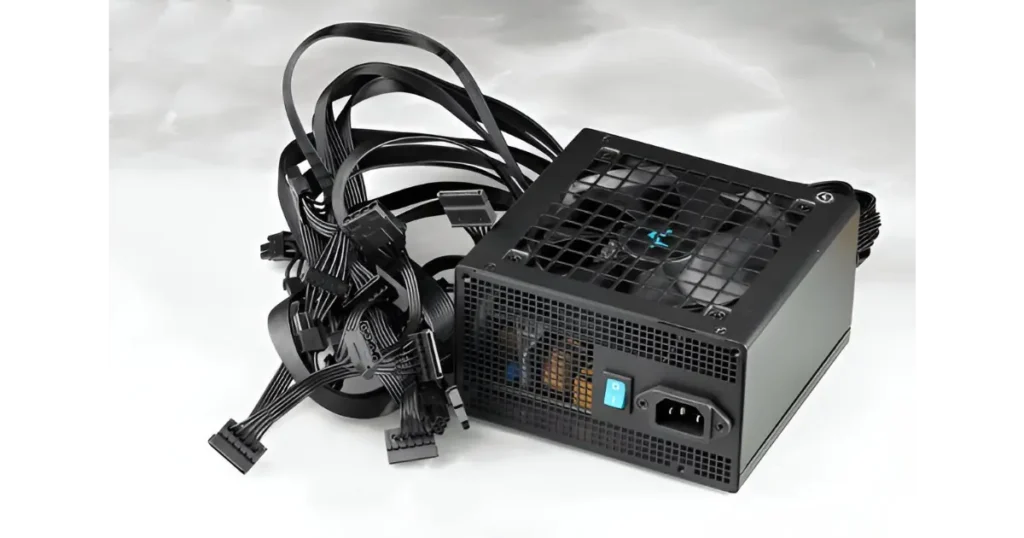
The Power Supply Unit plays a key role in a PC’s performance, and its weight often correlates with its power output and capacity. Higher wattage units are designed to support high-power systems, making them heavier than lower-capacity models. The build quality also impacts the weight, with some units ranging from 1.13 Kg (2.5 lbs.) to 2 Kg (5 lbs.). A well-built power supply ensures more stable performance, but users must tend to balance quality and output when selecting one.
PC Coolers

Keeping a PC at optimal temperatures is essential for performance, and different cooling solutions can add weight to the system. Standard air coolers are a common choice and typically weigh around 0.45 Kg (1 lb.), making them lightweight and effective. However, for more intensive cooling needs, including water-cooling systems, the weight increases up to 2 Kg (4.4 lbs.), providing better heat dissipation but adding bulk. Choosing the right cooler depends on the system’s cooling requirements and available space.
RAM
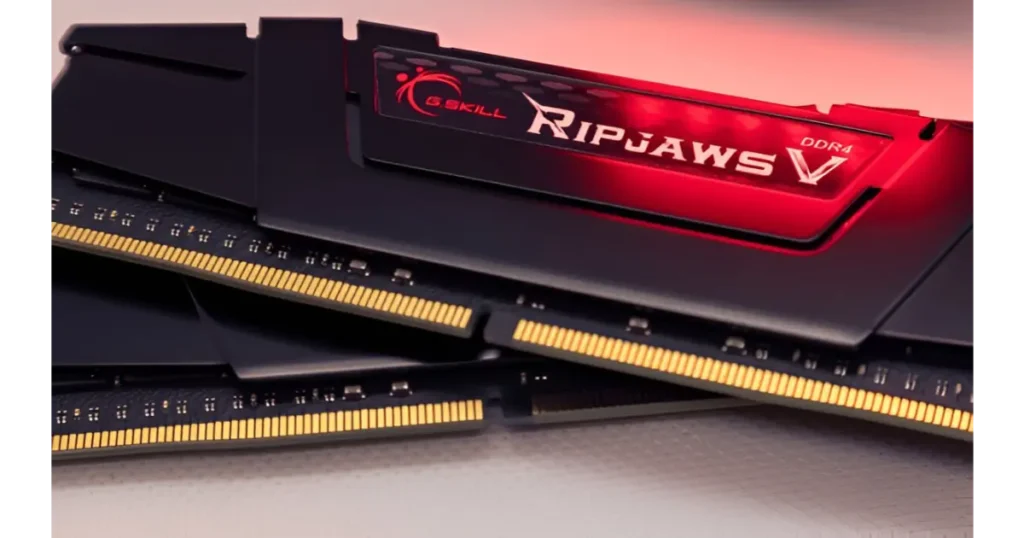
Even though RAM is lightweight, its total weight increases as the number of sticks and modules installed grows. Some advanced models come with additional features such as RGB lighting, which can slightly add to the overall weight.
Storage Devices

Choosing the right storage solution for your PC depends on factors like capacity, performance, and aesthetics. A traditional hard drive (HDD) is dependent on mechanical parts, which makes it heavier. For example, a 4TB HDD, typically weighing around 0.69 Kg (1.53 lbs.), provides large storage capacities but is slower compared to SSDs. In contrast, SSDs, known for offering faster data access speeds, are lighter and have weights ranging significantly based on the brand and model.
The choice of components also affects the overall weight of a PC. Those aiming for higher performance often opt for SSDs, while users prioritizing bulk storage might go for HDDs. Additionally, factors like cooling solutions and overall build aesthetics contribute to weight differences. Researching individual measurements or taking rough averages can give a better estimate of how much a PC might weigh based on selected components.
Frequently Asked Questions
What is the average weight of a gaming PC?
The weight of a gaming PC can vary depending on the components used, but on average, a mid-range build weighs between 10 to 20 kg (22 to 44 lbs.), while high-end setups with larger GPUs, liquid cooling, and full-tower cases can exceed 25 kg (55 lbs.).
Which components contribute the most to a gaming PC’s weight?
The PC case, power supply unit (PSU), graphics card (GPU), and cooling solutions are some of the heaviest components. A high-end GPU alone can weigh up to 1.5 kg (3.3 lbs.), and a PSU can range from 2.5 to 5 lbs. depending on its wattage.
Does a gaming laptop weigh less than a gaming desktop?
Yes, gaming laptops are designed to be portable and generally weigh between 2 to 5 kg (4.4 to 11 lbs.), depending on screen size, cooling, and battery. In contrast, gaming desktops are much heavier due to their larger components and expandability.
How much does liquid cooling add to a gaming PC’s weight?
Liquid cooling systems, especially custom water loops, can significantly increase weight. Depending on the radiator size, pump, reservoir, and coolant, a liquid cooling setup can add 2 to 5 kg (4.4 to 11 lbs.) to the PC’s total weight.
Can I reduce the weight of my gaming PC without affecting performance?
Yes, opting for a lighter case, using an SSD instead of an HDD, choosing an efficient PSU, and avoiding excessive cooling solutions can help reduce weight while maintaining performance. Mini-ITX builds also offer powerful performance in a more compact and lightweight form.
